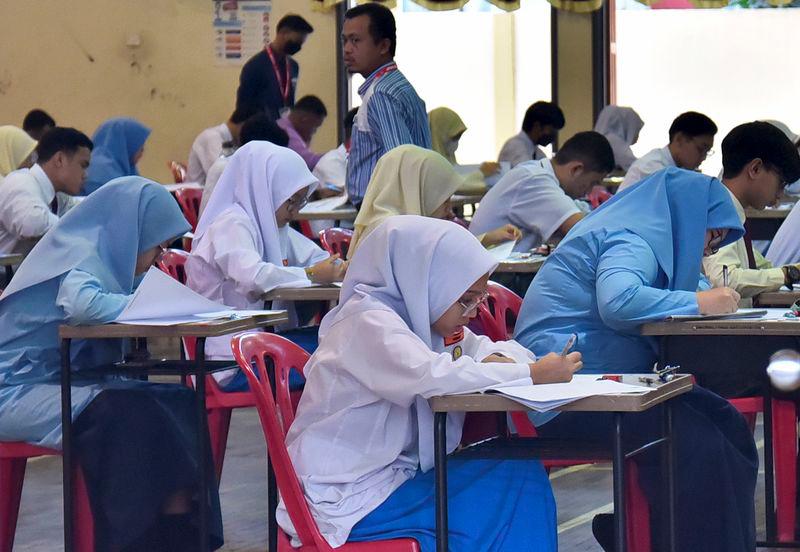PETALING JAYA: Reforming the education syllabus and providing clear and transparent explanations about the new assessment system must be the priority if the government shifts to school-based assessment instead of national exams, said Universiti Kebangsaan Malaysia senior lecturer Dr Anuar Ahmad.
He was commenting on Education Minister Fadhlina Sidek’s announcement in the Dewan Rakyat on Nov 26 that her ministry is moving away from exam-focused learning to reduce stress among students.
She said the ministry is shifting to enquiry, exploration, and holistic learning methods to support students’ overall growth rather than focus solely on academic results.
The Ujian Pencapaian Sekolah Rendah was abolished in 2021, followed by the cancellation of the Pentaksiran Tingkatan Tiga in 2022. These reforms marked a shift away from high-stakes exams and aimed to reduce the emphasis on tests.
Anuar said the current syllabus, which was drafted in 2012 and reviewed in 2017, remains exam-oriented. As a result, the existing assessment system does not fully align with the vision of a less exam-centric education system.
ALSO READ: Call for transparency on roles of national exam syndicate
“Parents have not received a clear and reassuring explanation about how this new assessment will be implemented, making it difficult for them to trust and understand the change.
“They are not even clear about how the assessment will work. As long as this continues, they will question the changes. The ministry must play a proactive role in communicating the details to the public.”
Anuar said while exams are still a necessary part of the education system, they should not be viewed solely as sources of stress. Instead, they should be balanced with other forms of assessments that support holistic development.
“Our education system still requires examinations, which may cause stress for children, but this stress is manageable.”
Anuar advocated the concept of “eustress”, which is a positive form of stress that helps students prepare, concentrate, and perform better.
“It is a short-term and manageable experience. After achieving their goals, students experience relief, happiness and enhanced self-esteem.
“However, stress becomes harmful when comparisons from parents, teachers, or schools, transform manageable stress into chronic stress, which leads to burnout, anxiety, and diminished motivation. Effectively managing stress requires cooperation from all parties.”
On April 25, a World Bank report titled “Bending Bamboo Shoots: Strengthening Foundation Skills” raised concerns about Malaysia’s education system.
Despite significant government investment, Malaysian students are still performing poorly in comparison with their regional counterparts.
By the end of Year 5, only 58% of Malaysian pupils are proficient in reading, trailing behind neighbouring nations with similar economic standing.
This highlights the need for reforms that not only reduce stress but also improve academic outcomes.
In a related move, Sarawak recently announced that Year Six pupils will sit for the state’s standardised assessments in Mathematics, Science and English starting next year.
This initiative aims to assess the progress of the dual-language programme and better prepare them for the Sijil Pelajaran Malaysia.
Anuar praised Sarawak’s move, signalling its effort to address gaps in the current education system while offering a more tailored, state-level approach to evaluating students.
He expressed hope that the education minister will address the issue effectively and emphasised the need for careful planning.
“Transitioning from an exam-oriented to a non-exam education system depends on the government’s commitment and how well parents and educators collaborate for a more balanced and effective educational environment for students,” he said.









